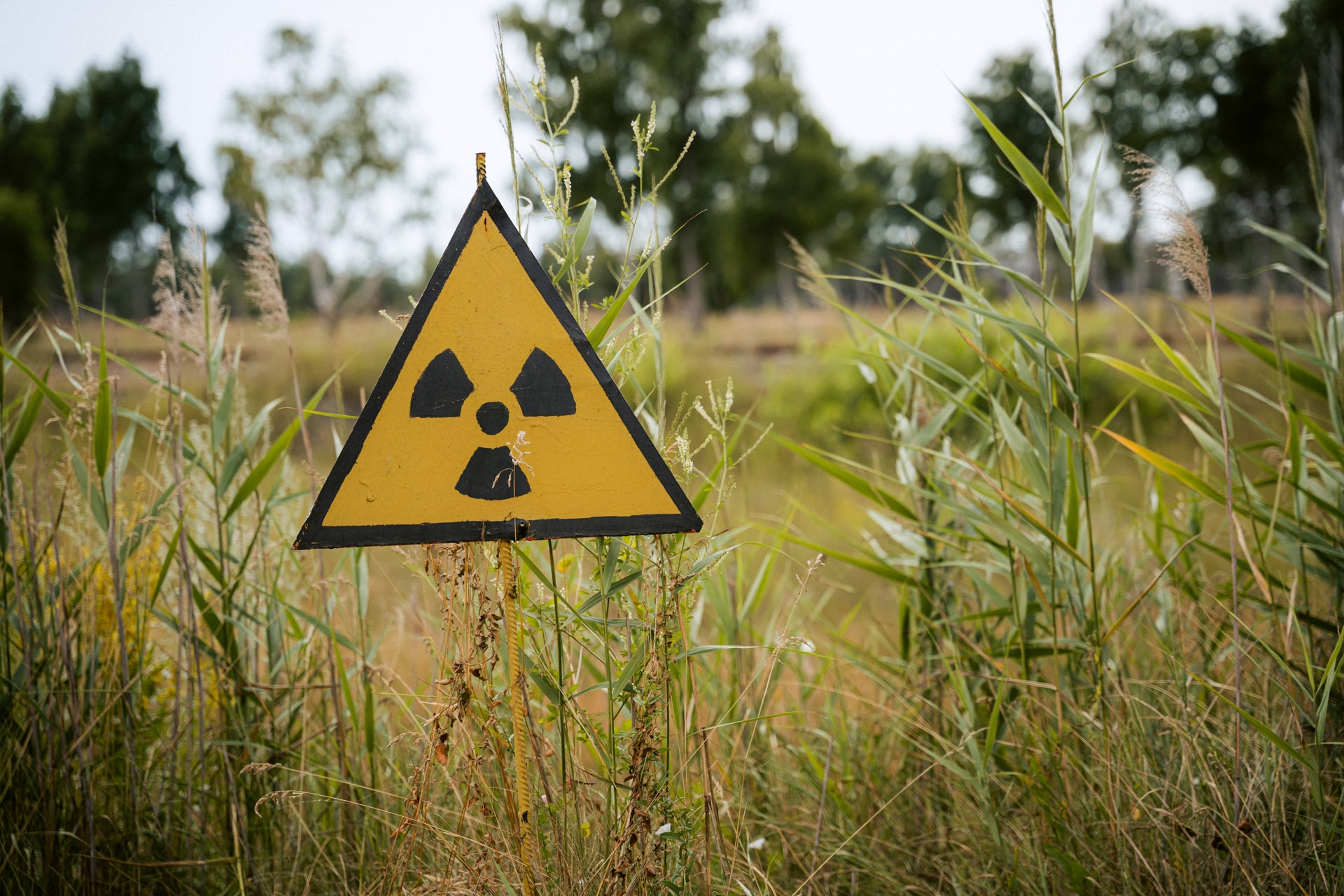by Nicole Yurcaba
Note: The author wrote portions of this review prior to 24 February 2022. The review has been revised to incorporate not only those events, but also a focus on events after that date.

Prior to 24 February 2022 — the day of Russia’s invasion of Ukraine, the ongoing, eight-year long war in Ukraine received little to no airtime or headlines in Western media. In the past, Russia’s annexation of Crimea and its war in the Donbas region appeared at the expense of Ukrainians and the Ukrainian government’s efforts to spur support from Western leading nations such as the US, the UK, and even Germany—a nation whose own Christoph Heusgen admitted Angela Merkel “against strong opposition from the United States…prevented Ukraine from being granted the prospect of joining NATO.” While many Europeans, particularly Eastern Europeans, recognize the true threat that Putin’s brutal massacre in Ukraine poses to the rest of Europe, so often media outlets refer to the ongoing war in Ukraine as a mere “conflict” or “crisis.” Perhaps to remedy this misnomer as well as their perceptions of Putin’s war, the offenders should not only research the events that sparked the current war, but also grab a copy of Two Dollar Radio’s latest success, Kalani Pickhart’s I Will Die in a Foreign Land.
Set primarily in 2014, I Will Die in a Foreign Land tackles not only the persistent, difficult, and sometimes controversial issues of Ukrainian history: the Holodomor, Chornobyl, a centuries-long pursuit for independence, the Orange Revolution, persistent systemic corruption. It also challenges the average person’s knowledge about Ukraine in general: the politicization of Ukrainian language in a country where most people speak both Russian and Ukrainian; the continued threat, as well as the perpetuating health hazards, stemming from the Chornobyl nuclear disaster’s environmental ravages; Ukraine’s progressive attitude toward the LGBTQ+ community, and the mass exodus many Ukrainians are making to countries like the US, the UK, and Australia in pursuit of a safer environment and a better economic future. In the novel, each major character represents some significant part of Ukrainian history. There’s Misha, the widower and former engineer who protests at Maidan and, driven by his kozak blood, eventually joins the Ukrainian Army. There’s the fearless Slava, a bisexual feminist who participates in the protests at Maidan. Readers also meet Katya, the Ukrainian-American doctor originally born near Chornobyl struggling through the onslaught of grief her son’s death has given her. Briefly, readers travel to Chornobyl, where babusi like Misha’s mother eek out a meager existence in a toxic landscape. Last, there’s Aleksandr, the gone-rogue KGB agent and pianist who plays every day amidst the protests, despite the harm he faces. As readers follow each character, readers note that the characters’ stories, like carefully selected threads, weave and intertwine, not only with each other’s stories, but also with stark headlines from the Ukrainian news, snippets of history sung by the kobzari, and, fascinatingly enough, bits of Lemko folklore. Thus, structurally, the novel becomes as intricate as a pattern sewn on a Ukrainian rushnyk, the celebrated embroidered towels many Ukrainians display in their homes.
Like Maidan and the protestors which worked to oust Yanukovych’s Moscow-backed government, I Will Die in a Foreign Land is not quiet in its protest of Russian aggression. What it highlights even more for Western readers unfamiliar with the complexities of Russo-Ukrainian politics is not only the thousands of years of history the two countries share, but also the air of superiority and dominance Russia has exhibited over Ukraine, and many other former Soviet-bloc countries, for centuries. The poetic simplicity of Pickhart’s language accentuates these matters, and elegant statements condense these issues into easily digestible packages such as “Ukrainian fights Ukrainian for Ukraine” and “Ukraine is at war, but the world doesn’t yet call it a war.” However, just when readers think they’ve come to an understanding regarding Russia and Ukraine’s labyrinthine relations, Pickhart adds another layer through which readers need to dig as the novel’s characters reveal more and more of their personal conflicts and histories that influence their decisions to participate in Maidan. The personal conflict is never clearer in the novel than when Misha encounters his friend Petyr, a Chornobyl guard who decides to fight with the Russian separatists: “Misha shakes his head, and says to him, ‘You will always be my brother, Petyr. But on this, I must go the other way.’”
Central to the novel is its discussion of love and patriotism. This discussion is relevant in the brief relationship between Slava and Dascha, a reporter who comes to Kyiv from the East. Bold and daring, a woman who Slava initially perceives as in favor of the Russian occupation of Crimea, Dascha remarks, “‘I stay and work because I have to believe there is a reason worth staying. Not just Ukraine’s story—but my story. Your story. Our story. I do this because I believe in us–in all of Ukraine.’” Dascha’s sentiments echo those of the more patriotic, like Misha, as well as the imprisoned journalists like Oleg Sentsov who makes an appearance in the novel via news excerpts: “‘If we are supposed to become nails in the coffin of a tyrant, I’d like to become one of those nails. Just know this particular nail will not bend.’” Aleksandr, the pianist, offers readers a different take:
In Soviet times, it was dangerous to believe in God, and it was dangerous to love. Some say love is okay—the love of Lenin, of Stalin—but there’s a certain type of love that can kill you. A deeper kind. A kind that possesses, disorients. The love of family is dangerous enough. But then there’s a kind of love that when discovered wants to survive like a disease, and it will ruin you as you try to protect it.
Of course, combining with love and patriotism in the novel is another concept that Ukrainians know on a personal and cultural level—that of loss. Slava reflects, “Loss, when it occurs, has a memory stronger than the mind, stronger than visual recollection patterned in the brain.” Readers can interpret Slava’s experience with loss as a representation of the cultural and linguistic loss that Ukrainians, Jews, and Roma alike have experienced at the hands of the Russian Empire. It is made even more relevant when Misha, prior to leaving for the war, tells Katya “‘I don’t trust people who have never felt loss.’”
Another unique element of I Will Die in a Foreign Land lies not just in the way it holds a microscope over the events of Maidan and discloses a select few characters’ personal stories. Ultimately, just as readers discover each characters’ own reasons for participating in Maidan, readers hold the power to choose their hero or heroine. As readers make their choice(s), they’re challenged socially and politically, at times even morally, and asked to look inward at themselves and their own understanding of the world, society, and their own tangible environment. Therefore, the book possesses a boundary-shattering universality that much of Ukrainian or Ukraine-focused literature lacks, which is why it has not found its way into the hands or onto the Kindles of the majority of Western readers (of course, cultural literacy—particularly in regards to American audiences—plays a remarkable role in this reception as well).
In her 90s-era groundbreaking novel Fieldwork in Ukrainian Sex, Oksana Zabuzhko notes that it is a Ukrainian’s duty, per se, to break away from that “Ukrainian curse of nonexistence.” With its reliance on the past and the ancestral ties that not only Ukrainians, but all Slavs, rely upon for their identities, I Will Die in a Foreign Land makes audiences fully aware that, as a people and as a resilient nation, Ukrainians do exist, and they will continue to do so. The novel has the ferocity and tenacity of Oksana Zabuzhko’s Museum of Abandoned Secrets, while in its discussion of the role of revolutions and the individuals who make them happen, as well as the individual experiences and decisions that fuel one’s reasons for participating, the novel is as elegant and powerful as Steven Galloway’s The Cellist of Sarajevo. At its core, however, the novel asks readers to remember the cost of loss, the price of love, and the ultimate meaning of empathy.
Nicole Yurcaba (Ukrainian: Нікола Юрцаба) is a Ukrainian-American poet and essayist. Her poems and essays have appeared in The Atlanta Review, The Lindenwood Review, Whiskey Island, Raven Chronicles, Appalachian Heritage, North of Oxford, and many other online and print journals. Nicole holds an MFA in Writing from Lindenwood University, is the recipient of a July 2020 Writing Residency at Gullkistan, Creative Center for the Arts in Iceland, and is a Tupelo Press June 2020 30 for 30 featured poet. Her poetry collection Triskaidekaphobia is forthcoming Black Spring Group in 2022. She teaches poetry workshops for Southern New Hampshire University and works as a career counselor for Blue Ridge Community College.



Add your first comment to this post